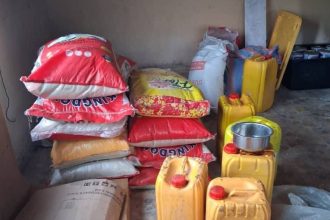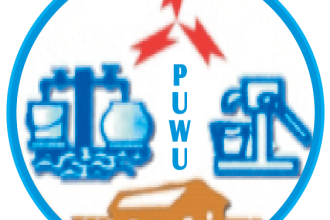Public health officers have arrested some sixteen persons from the Accra Metropolitan Assembly (AMA) for open defecation.
The culprits were picked up Wednesday morning (November 2, 2022) during a special operation within the Okaikoi South sub-metropolitan district.
The operation was carried out by the Sanitation Task Force of the Assembly, led by Environmental Health Officers. It formed part of continuous efforts to curb open defecation in the metropolis and to ensure a clean and hygienic environment.
Briefing the media, the Head of Public Affairs of the AMA, Gilbert Nii Ankrah, said the culprits would be given the option to pay a spot fine or face prosecution.
“Some of these practices, if we don’t put measures in place to deal with them, we would be contributing to the outbreak of some diseases, and we are well aware that if we don’t put in measures to deal with open defecation, it will exacerbate these outbreaks.
“As part of measures to eradicate open defecation, the Assembly’s One Household One Toilet Facility is currently ongoing, and we want to encourage all to approach the assembly. I can assure you that we can assist you to have a proper place of convenience for people to ease themselves,” he said.
He further urged residents to adhere to the measures introduced by the assembly to help prevent the outbreak of diseases and keep a healthy population.
Open defecation remains a very big health and environmental hazard in many developing countries in Africa.
Research suggests that about 2.4 billion people globally still lack access to improved sanitation, and about 946 million practice open defecation.
In Ghana, 27 per cent engage in open defecation due to a lack of latrines, and many are seen sharing sanitation facilities, which leads to the prevalence of sanitation-related diseases, according to a WHO/UNICEF 2012 report.
An Afrobarometer survey scorecard on the UN sustainable development goals (SDGs) on water and sanitation showed about 33 per cent of the people have access to household toilets, representing a 15 per cent increase from 2015, while 92 per cent of the entire population have access to water.
At a press briefing on June 24, 2021, Minister of Sanitation and Water Resources Cecilia Abena Dapaah said the government had provided toilet facilities for about 275,000 people in low-income communities, including more than 34,000 households in the Greater Accra Metropolitan Area.
She said 406 disability-friendly, fit-for-purpose and gender-sensitive institutional sanitation facilities had also been constructed for 260 schools in low-income communities.
In July 2020, the then Minister for Inner City and Zongo Development, Dr Mustapha Abdul-Hamid, helped build over 200 household toilets for inner city communities in Accra.

The 252 household toilets within the inner cities included but were not limited to Mudor, Ayalolo, Korle Gonno, Mamprobi, Agbogbloshie, Bukom, Osu Anorhor, Chorkor, Okpongobu and Kokompe.
The project was undertaken under the Greater Accra Metropolitan Assembly Sanitation and Water project (GAMA-SWP) and supported by the World Bank and the Government of Ghana.
It is clear efforts are in place to ensure toilet facilities are made accessible to everyone, but still, the problem persists.
















